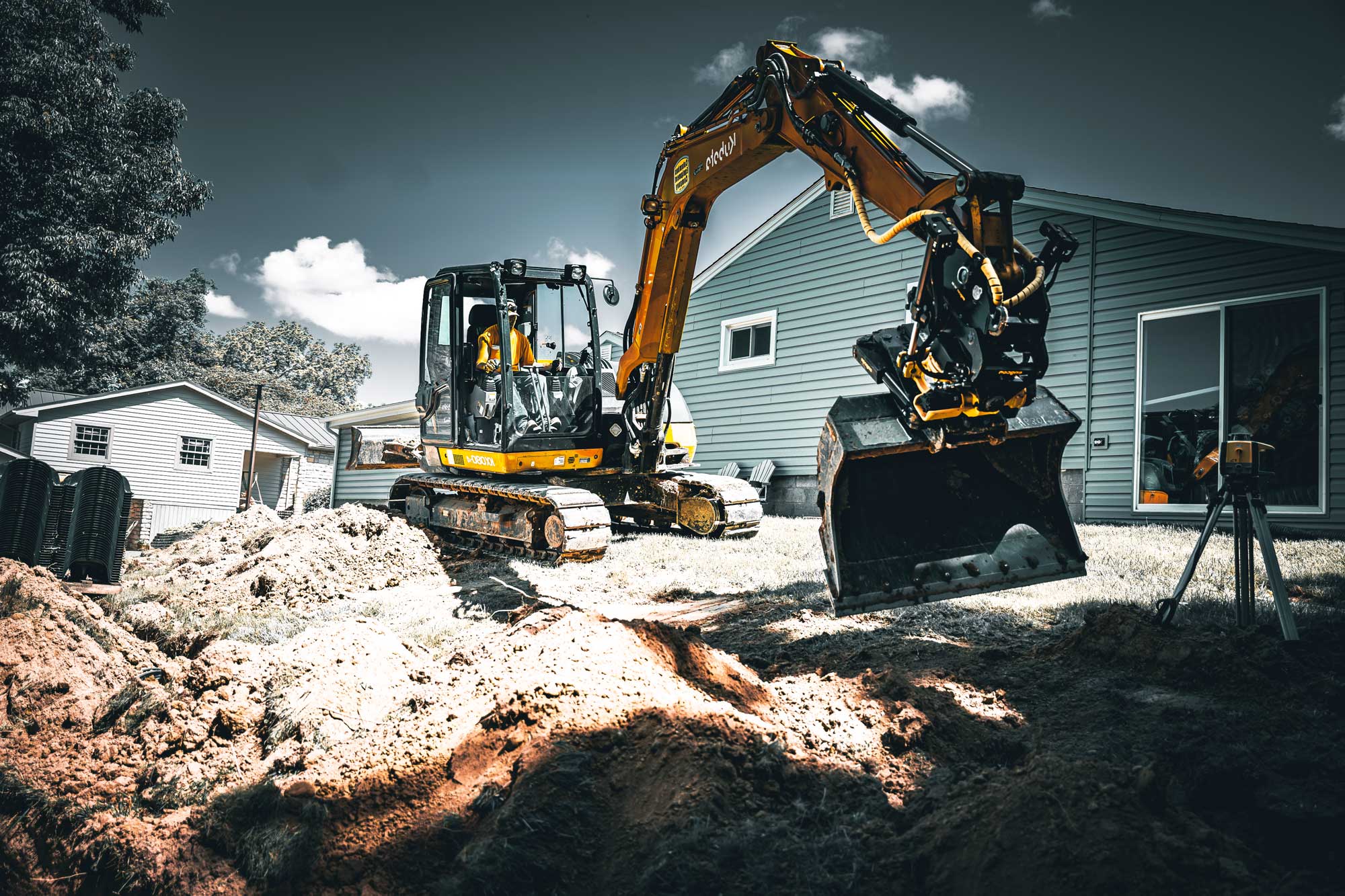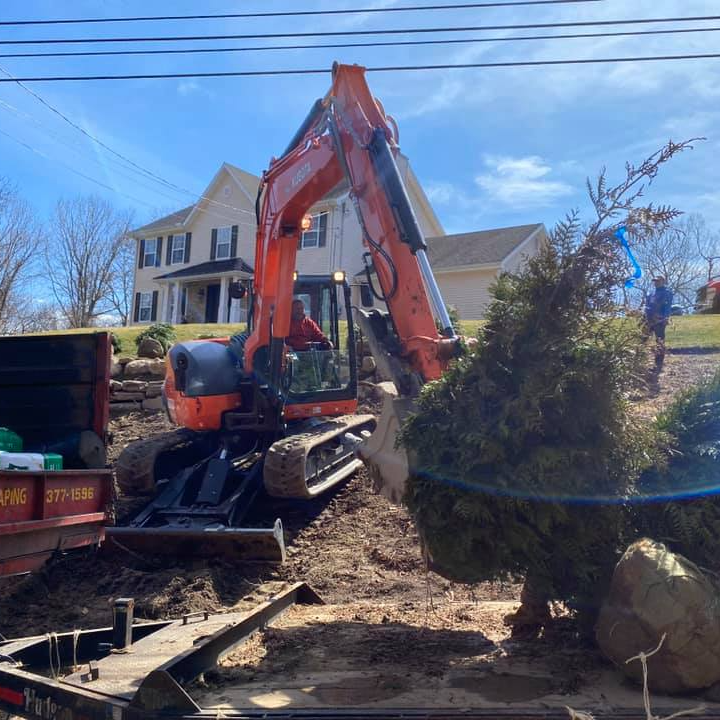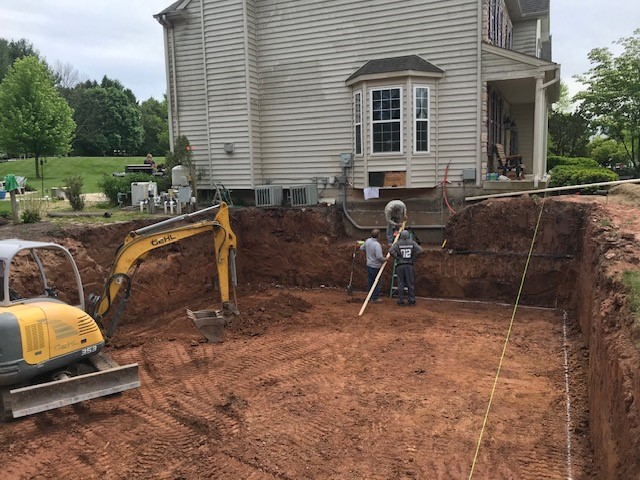Lancaster Excavation - Expert Excavation Providers in Lancaster, OH
Lancaster Excavation - Expert Excavation Providers in Lancaster, OH
Blog Article
Comprehensive Exploration: The Science Behind Superior Excavation Practices
The world of excavation techniques is a domain name where science intertwines with workmanship to uncover the mysteries hidden under the earth's surface area. From ancient hand tools to contemporary hydraulic excavators, the evolution of excavation methods has been a testament to human resourcefulness and technological improvements. Nonetheless, what absolutely sets exceptional excavation practices apart is a deep understanding of geological concepts, paired with the application of cutting-edge tools and methods. By discovering the science behind these practices, we can discover the secrets that lie under our feet and value the accuracy and expertise that go into every dig.
Advancement of Excavation Methods
Throughout background, the evolution of excavation methods has played an important function beforehand construction practices and historical explorations. From the primary devices made use of by our ancestors to the sophisticated machinery used in modern times, the development of excavation approaches has significantly transformed exactly how we approach different tasks.
In old times, manual work with standard tools such as shovels, pickaxes, and wheelbarrows was the primary method of excavation. This labor-intensive process limited the deepness and scope of excavations, usually resulting in sluggish development and limited accessibility to certain websites. As civilizations advanced, so did the methods and devices made use of for excavation.
The Industrial Change marked a turning factor in excavation exercise with the introduction of steam-powered machinery. This development revolutionized the area, permitting for faster and much more considerable excavations. In modern times, technology plays a crucial role in excavation, with innovations like GPS systems, drones, and 3D scanning enhancing accuracy and effectiveness in the field. The advancement of excavation techniques remains to shape the way we build, discover, and recognize the world around us.
Duty of Modern Technology in Excavation

The integration of advanced modern technology has actually fundamentally revolutionized the field of excavation, boosting precision and performance to unprecedented degrees - septic ohio. One of the crucial technical improvements that has actually substantially influenced excavation methods is the utilization of GPS systems.
Additionally, the development of 3D modeling and simulation software has structured the preparation procedure for excavation jobs. Designers and operators can currently picture the whole excavation process prior to beginning, maximizing and determining possible obstacles workflow. Together with this, the execution of drones in excavation activities has promoted airborne surveys, volumetric measurements, and website evaluations with unmatched rate and accuracy.
Geological Principles in Excavation
An understanding of geological principles is vital for ensuring the structural stability and stability of excavation sites. Geological variables play a vital duty in identifying the feasibility and safety and security of excavation projects (lancaster excavation). One vital geological concept to think about is the type of soil or rock present at the website. Various soil types, such as clay, crushed rock, or sand, have varying levels of security and need various excavation methods. Natural dirts like clay might require extra support to prevent collapses, while sandy soils might be susceptible to disintegration throughout excavation.
Additionally, the geological framework of the location, including faults, fractures, and rock developments, need to be very carefully evaluated to recognize possible threats and obstacles. Excavating near mistake lines or unsteady rock developments can result in instability and prospective hazards. By performing extensive geological studies and analysis, excavators and engineers can create techniques to minimize threats and make sure the effective conclusion of excavation jobs. Ultimately, incorporating geological concepts right into excavation methods is crucial for attaining secure, efficient, and sustainable outcomes.

Most Recent Devices for Excavation
In the realm of excavation methods, contemporary technologies in devices have changed the performance and precision of excavation procedures. Among the current devices making waves in the sector is using drones equipped with advanced imaging innovation. These drones can provide thorough aerial surveys of excavation websites, using real-time data on topography and possible hazards. This details aids in far better preparation and decision-making during the excavation process.
Another cutting-edge device gaining popularity is the implementation of 3D printing modern technology for producing custom-made excavation devices. This enables the production of specialized tools that are tailored to the particular demands of a project, increasing efficiency and minimizing downtime.
Additionally, innovations in materials science have actually brought about the advancement of stronger and extra sturdy excavation devices. lancaster excavation. Tungsten carbide-tipped excavator add-ons, as an example, deal premium efficiency in difficult try this website ground problems, boosting performance on-site
Science's Influence on Excavation Practices

Additionally, clinical research on soil technicians and geotechnical design has actually provided useful understandings right into dirt behavior, allowing excavation professionals to make informed decisions concerning excavation techniques and dirt stabilization strategies. Overall, science continues to drive advancement and enhancement in excavation methods, making excavation jobs a lot more efficient, cost-efficient, and sustainable.
Final Thought
To conclude, the development of excavation methods has actually been greatly affected by advancements in innovation and a deeper understanding of geological principles. The most up to date tools and tools utilized in excavation have enhanced effectiveness and precision in the field. The application of clinical knowledge has actually significantly improved excavation practices, leading to more sustainable and reliable approaches for digging deep into different kinds of materials.
In the world of excavation practices, modern technologies in tools have revolutionized the performance and accuracy of excavation procedures. By leveraging clinical concepts, the excavation market has actually been able to substantially boost performance, precision, and safety in excavation processes. GPR allows excavation groups to non-invasively check and map subsurface frameworks, utilities, and prospective risks, allowing them to plan excavation tasks with greater precision and minimized danger of crashes.
Furthermore, scientific study on soil mechanics and geotechnical engineering has provided beneficial understandings right into soil behavior, enabling excavation specialists to make informed decisions pertaining to excavation techniques and dirt stablizing methods. Overall, scientific research proceeds to drive development and renovation in excavation methods, making excavation jobs a lot more efficient, affordable, and pop over here sustainable.
Report this page